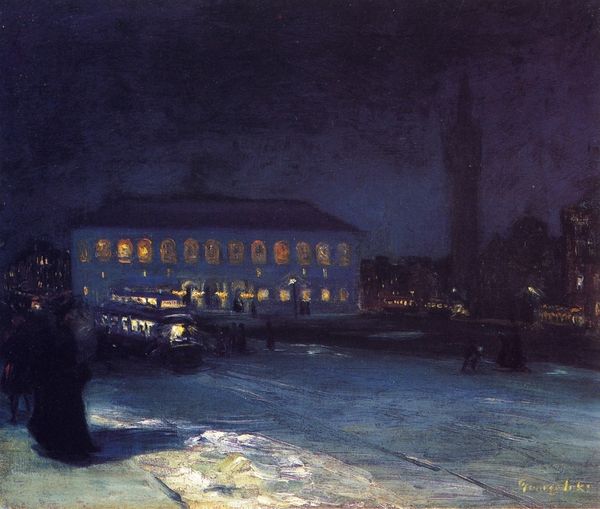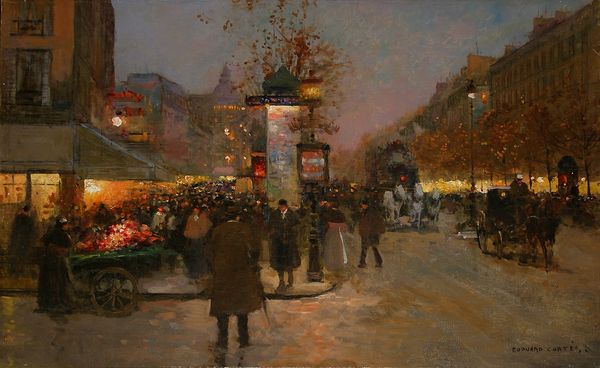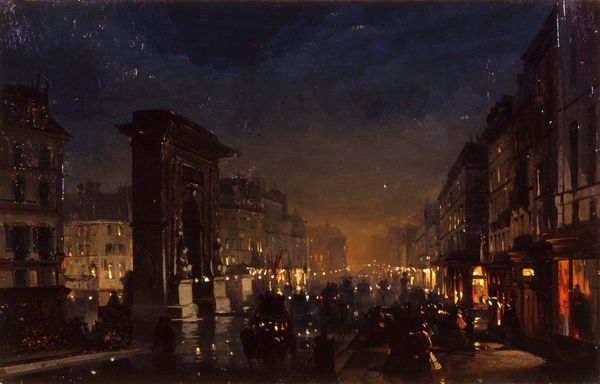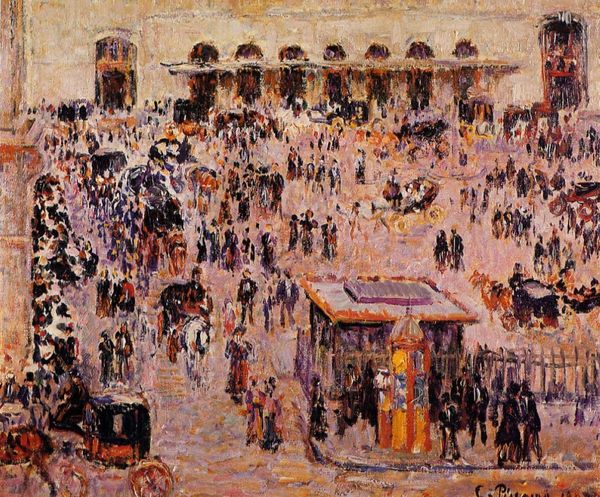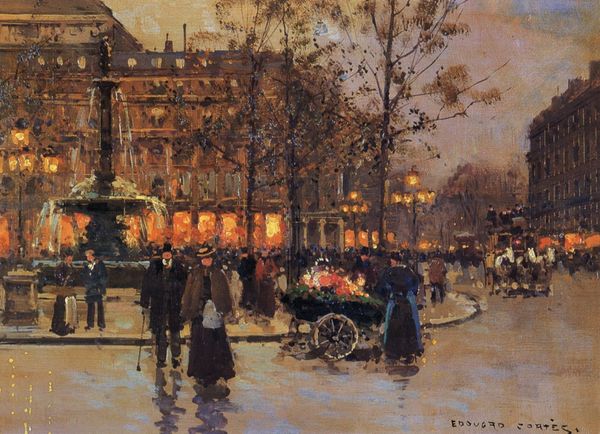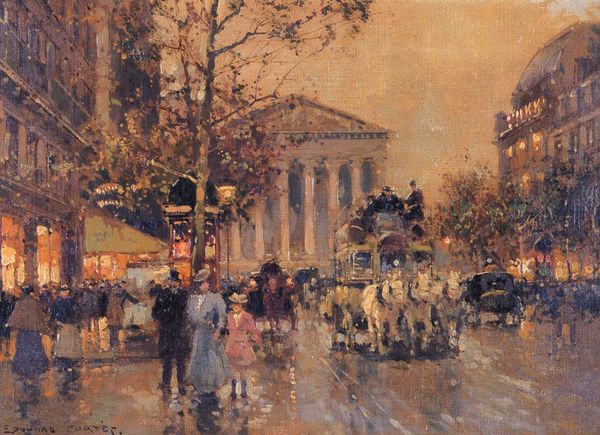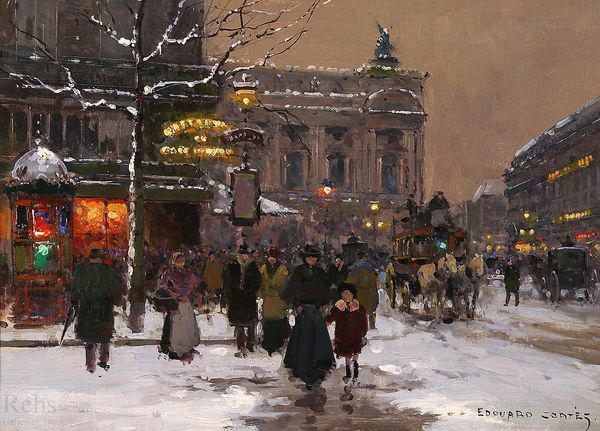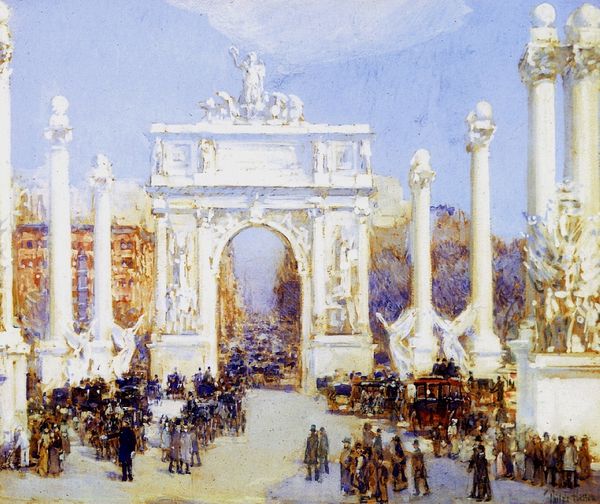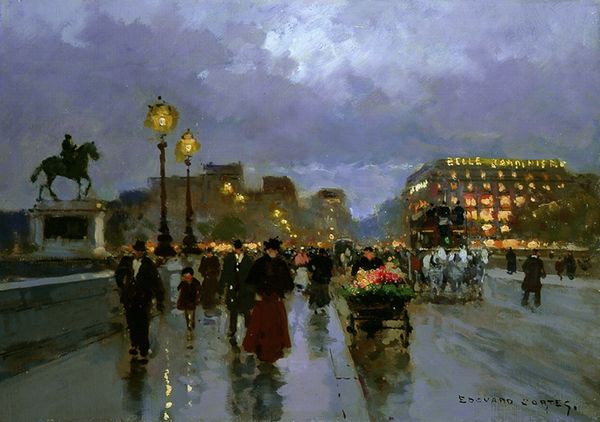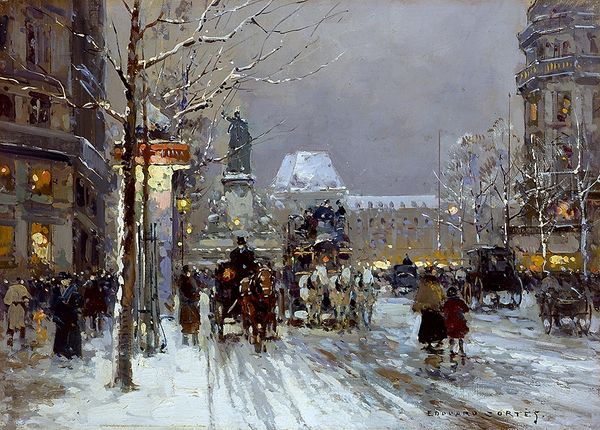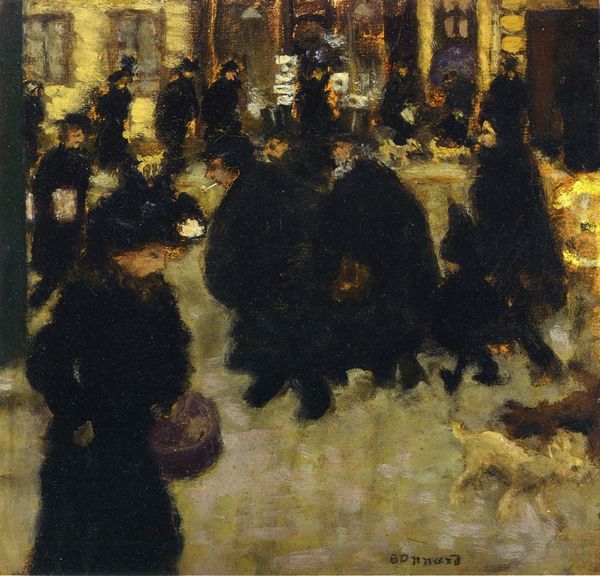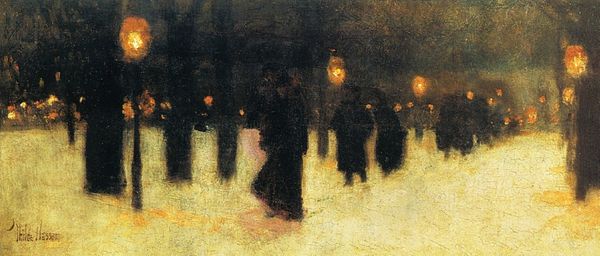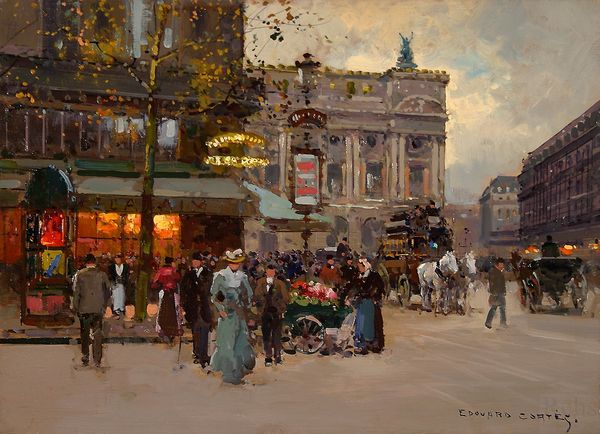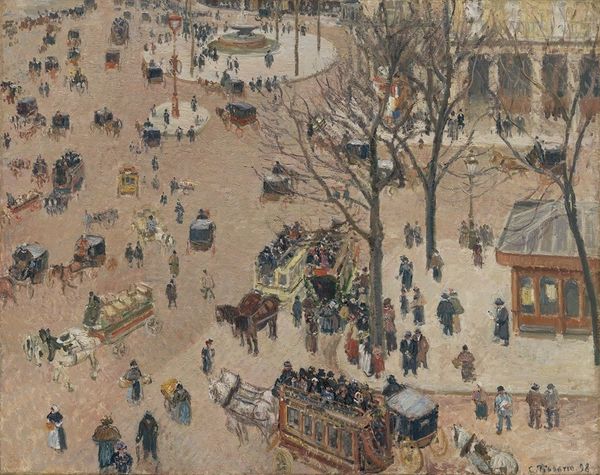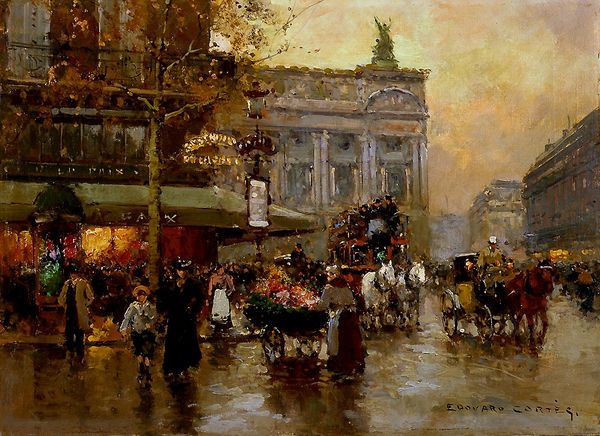
Copyright: Public domain US
Giacomo Balla painted "Luna Park, Paris" without providing the date, presenting us with a challenge to interpret the image and connect it to its wider social context. The painting captures the vibrant atmosphere of an amusement park, with its illuminated carousels and bustling crowds. To understand this artwork, we must consider the cultural and social landscape of early 20th-century Paris. This was a time of rapid industrialization, urbanization, and social change, influencing Balla’s emphasis on light and movement. Amusement parks like Luna Park were emerging as popular spaces for leisure and entertainment, reflecting a shift in societal values and the rise of a consumer culture. Balla's depiction of the park speaks to its impact on the culture, especially in its effect on working-class communities. He seems to have been investigating how the amusement park challenges existing social norms. As historians, we rely on archival research, historical accounts, and critical analysis to understand the social, cultural, and institutional factors that influenced Balla and his work. Ultimately, this painting allows us to reflect on the meaning of art and how it reflects social and institutional contexts.
Comments
No comments
Be the first to comment and join the conversation on the ultimate creative platform.
